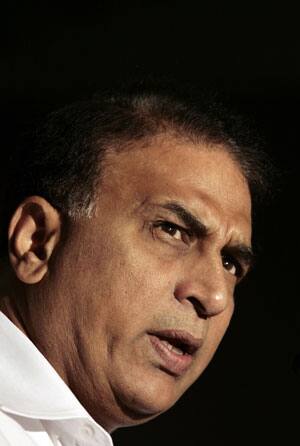
Cricket Country Staff
Editorial team of CricketCountry.
Batting legend Sunil Gavaskar has hit out at the International Cricket Council (ICC) for retaining the Duckworth/Lewis rule for rain-affected games despite an alternative suggested by an Indian engineer.
Written by Cricket Country Staff
Published: Jun 03, 2012, 03:26 PM (IST)
Edited: Jun 03, 2012, 03:26 PM (IST)


Sunil Gavaskar had proposed a new method formulated by V Jayadevan © AFP
New Delhi: Jun 3, 2012
Batting legend Sunil Gavaskar has hit out at the International Cricket Council (ICC) for retaining the Duckworth/Lewis rule for rain-affected games despite an alternative suggested by an Indian engineer.
The game’s world governing body on Friday said it would stick with the rule devised by Englishmen Frank Duckworth and Tony Lewis, as it did not feel that any improvements could be offered in the method put forward by V. Jayadevan.
Gavaskar, writing in his column for the Times of India newspaper on Sunday, said the ICC should have at least given a trial to Jayadevan’s system of calculating revised targets in limited-over matches.
“In all fairness ICC should have tried the Jayadevan method for a year, like they do with trial laws, and then decided,” the former India captain said.
Jayadevan, an engineer from the south Indian state of Kerala, has spent a decade working on his so-called VJD system which has been used in Indian domestic matches since 2007 following a recommendation from Gavaskar himself.
The ICC’s cricket committee, meeting in London, said it had considered Jayadevan’s method in detail but found no evidence of any significant flaws in the D/L method, which was first introduced internationally in 1996.
Gavaskar also castigated the Indian media for failing to get behind Jayadevan.
“Unfortunately the Indian media was busy with the IPL (Indian Premier League),” the former opener wrote.
In England, Jayadevan’s challenge has been seen by some as another attempt by India, the game’s superpower, to chip away at the influence of the former colonial power and inventor of the game. (AFP)
This website uses cookies so that we can provide you with the best user experience possible. Cookie information is stored in your browser and performs functions such as recognising you when you return to our website and helping our team to understand which sections of the website you find most interesting and useful.
Strictly Necessary Cookie should be enabled at all times so that we can save your preferences for cookie settings.
If you disable this cookie, we will not be able to save your preferences. This means that every time you visit this website you will need to enable or disable cookies again.
